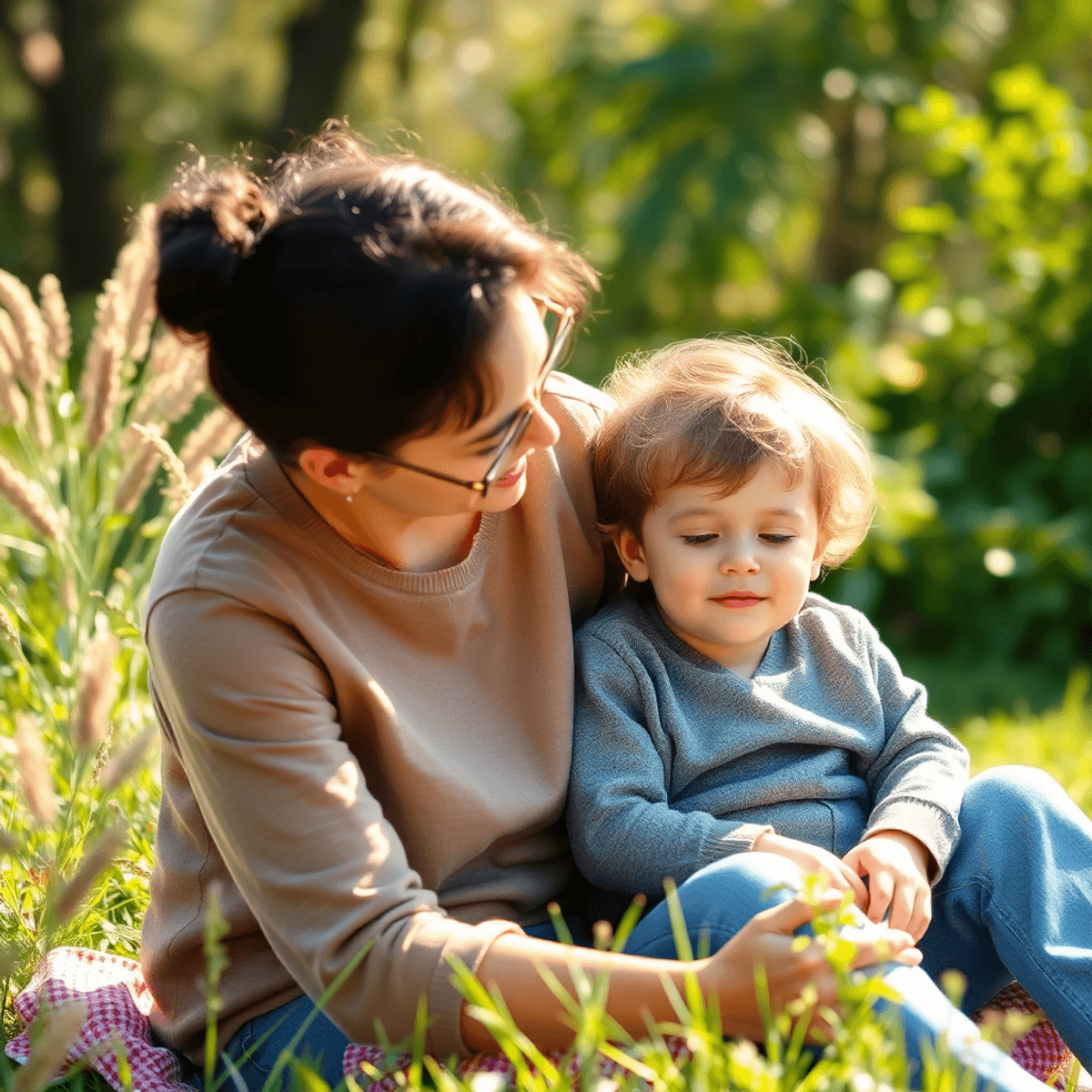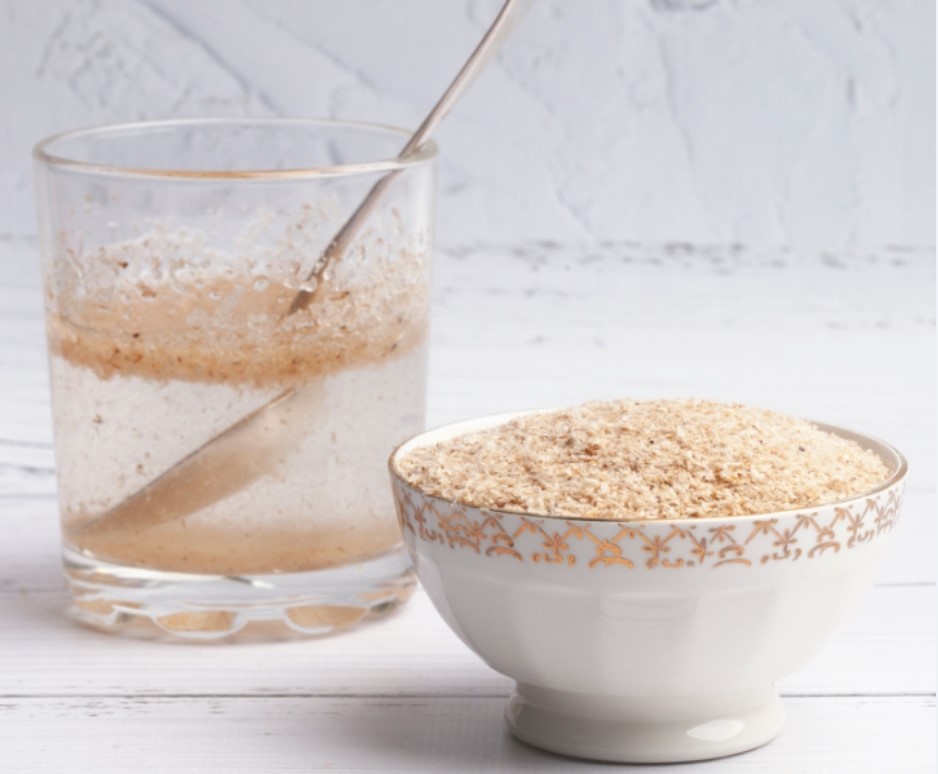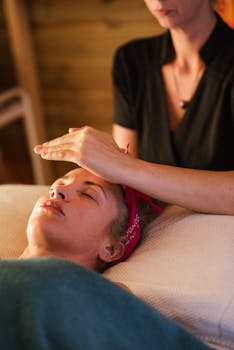Childhood anxiety affects up to 7% of children aged 3-17 years, making it one of the most common mental health challenges faced by young people today. This condition goes beyond normal childhood fears, causing persistent worry, physical symptoms, and disruptions to daily activities.
Parents seeking solutions often face a challenging decision: how to help their children while avoiding potentially harsh medications. The growing interest in natural anxiety medication for children stems from this exact concern.
Understanding Natural Anxiety Medication
Natural approaches offer gentler alternatives to prescription medications, working with your child’s body to restore balance and calm. These solutions include:
- Targeted nutritional supplements
- Safe herbal remedies
- Lifestyle modifications
- Behavioral strategies
For instance, targeted nutritional supplements can play a significant role in managing anxiety. It’s essential to ensure that these supplements are safe and suitable for your child’s specific health needs.
The Importance of Professional Guidance
However, not all natural remedies may be appropriate for every child. Some parents might wonder about the safety of certain medications like Ozempic, especially if the child has underlying health conditions such as diabetes. In such cases, it’s crucial to consult with a healthcare professional regarding the safety of taking Ozempic while pregnant, as this medication is primarily used for managing Type 2 diabetes.
Your child’s anxiety management journey deserves careful consideration and a balanced approach. Natural interventions can provide effective relief while supporting your child’s overall health and development. Understanding these options helps you make informed decisions about your child’s mental well-being.
Understanding Anxiety in Children
Childhood anxiety is caused by a combination of biological and environmental factors. Here are some key influences on your child’s anxiety:
1. Genetic Predisposition
- Family history of anxiety disorders
- Inherited brain chemistry variations
- Genetic mutations affecting neurotransmitter function
2. Environmental Stressors
- Academic pressure
- Social challenges
- Family dynamics
- Traumatic experiences
- Major life changes
3. Physical Health Factors
- Nutrient deficiencies (particularly B vitamins, magnesium, zinc)
- Gut microbiome imbalances
- Blood sugar fluctuations
- Hormone irregularities
- Food sensitivities or allergies
These factors can lead to various physical and emotional symptoms in children:
- Racing heartbeat
- Stomach aches
- Sleep disturbances
- Difficulty concentrating
- Excessive worry
- Social withdrawal
- Behavioral changes
The Gut-Brain Connection
The gut-brain connection is crucial in understanding how anxiety develops. Research shows that 90% of serotonin production occurs in the gut, linking digestive health directly to mood regulation. Children with anxiety often display signs of digestive issues, highlighting the importance of addressing both gut health and mental well-being.
Hormone Imbalances and Anxiety
Hormone imbalances can worsen anxiety symptoms. Cortisol, known as the stress hormone, can become dysregulated due to chronic stress, poor sleep patterns, or nutritional deficiencies. This creates a cycle where physical imbalances reinforce anxiety symptoms.
In this context, it’s essential to consider menopause-friendly nutrition, as dietary changes can alleviate some of these issues. For instance, understanding how Ozempic affects fullness could provide insights into managing dietary habits for better overall health.
Moreover, maintaining proper hydration is vital for health and wellness. The importance of proper hydration cannot be overstated, as it impacts everything from cognitive performance to weight management.
Why Choose Natural Anxiety Medication for Children?
Prescription medications for childhood anxiety can raise significant concerns. Many conventional anti-anxiety medications carry risks of:
- Dependency and withdrawal symptoms
- Mood swings and personality changes
- Sleep disruptions
- Appetite fluctuations
- Potential impacts on growth and development
Benefits of Natural Anxiety Remedies
Natural anxiety remedies offer gentler alternatives that work with your child’s body rather than forcing chemical changes. These solutions:
- Support the body’s natural stress response
- Address underlying nutritional needs, which can be crucial in meth recovery
- Promote balanced brain chemistry
- Create sustainable long-term results
- Minimize risk of adverse reactions
The safety profile of natural treatments stands out as a key advantage. Most natural supplements and herbs have centuries of documented use, demonstrating their effectiveness without severe side effects. You’ll find these remedies:
- Allow for flexible dosing based on individual needs
- Can be easily adjusted or discontinued
- Work synergistically with lifestyle changes
- Support overall health beyond anxiety symptoms
A Holistic Approach to Wellbeing
A holistic approach using natural remedies considers your child’s complete wellbeing. This method targets anxiety while nurturing physical health, emotional balance, and cognitive development. Natural treatments adapt to your child’s changing needs, creating a foundation for lasting mental wellness.
When considering natural anxiety medication for children, it’s important to remember that these remedies can also support weight management if needed. For instance, the principles behind 96-hour fasting, a method that has shown benefits in weight management when done safely, could complement the use of natural anxiety medication.
Moreover, some natural remedies could potentially assist in managing conditions like Type 2 diabetes. It’s beneficial to explore options such as Jardiance or Ozempic, which are often prescribed for such conditions.
Finally, incorporating certain elements into your child’s diet can also provide health benefits. For example, butterfly milk, known for its antioxidant properties and other health benefits, could be a valuable addition to their nutritional intake while managing anxiety naturally.
Natural Supplements for Managing Childhood Anxiety
Specific supplements can help address anxiety symptoms in children through natural pathways. Here’s a detailed look at key supplements proven effective for managing childhood anxiety:
1. Magnesium Glycinate
- Supports GABA production – the brain’s primary calming neurotransmitter
- Helps children fall asleep faster and stay asleep longer
- Reduces muscle tension and restlessness
- Recommended dosage varies by age and weight
2. Omega-3 Fatty Acids
- Essential for healthy brain development and function
- Reduces inflammation linked to anxiety
- Improves mood stability and emotional regulation
- Found in fish oil supplements specifically formulated for children
3. L-Theanine
- Natural amino acid that crosses the blood-brain barrier
- Promotes alpha brain wave production for calm alertness
- Reduces stress without causing drowsiness
- Available in chewable tablets for easy administration
4. B-Complex Vitamins
- B6 supports serotonin production
- B12 helps regulate mood and energy levels
- B1 and B3 support nervous system function
- Choose methylated forms for optimal absorption
5. Probiotics
- Strengthen the gut-brain connection
- Reduce inflammation affecting mood
- Support production of calming neurotransmitters
- Look for strains like Lactobacillus and Bifidobacterium, which are also known to strengthen immunity during seasonal changes.
6. Ashwagandha
- Adaptogenic herb that balances cortisol levels
- Reduces stress-induced anxiety
- Improves sleep quality
- Available in child-friendly forms like gummies
These supplements work best when introduced gradually under professional guidance. Each child responds differently, so starting with one supplement at a time helps identify what works best. Proper dosing based on age, weight, and individual needs ensures optimal results while maintaining safety.
In addition to these supplements, it’s essential to consider the impact of positive childhood experiences on overall health. Such experiences can foster well-being and resilience against adversity, further aiding in the management of childhood anxiety.
Herbal Remedies Suitable for Children with Anxiety
Herbal remedies offer gentle yet effective support for children experiencing anxiety. These natural options provide targeted relief while maintaining safety as a top priority.
1. Lavender
- Safe for children ages 5 and up
- Calms the nervous system through aromatherapy or tea
- Studies show reduced anxiety in school-age children
- Recommended dosage: 1-2 drops of essential oil in a diffuser or 1/2 cup of weak tea
2. Chamomile
- Works with the brain’s GABA receptors
- Reduces cortisol levels naturally
- Improves sleep quality without grogginess
- Best served as a caffeine-free tea before bedtime
- Safe for all ages when properly prepared
- Research indicates its effectiveness in treating anxiety
3. Lemon Balm
- Enhances cognitive performance and has been shown to reduce stress without sedation
- Improves focus and attention
- Available in glycerite form for easy administration
- Can be combined with chamomile for enhanced effects
4. Passionflower
- Suitable for children up to age 13
- Addresses anxiety without causing drowsiness
- Helps with attention-related challenges
- Available in liquid extract or tea form
- Best taken during daytime hours
5. Valerian Root
- Reserved for older children
- Supports healthy sleep patterns, making it a useful addition to sleep and relaxation routines
- Mild sedative properties
- Limited use recommended
- Best administered under practitioner guidance
Each herb requires specific preparation methods and dosing guidelines based on your child’s age and weight. Starting with small amounts helps identify any sensitivity while allowing the beneficial properties to work effectively. These herbal options can be integrated into your child’s daily routine through teas, tinctures, or glycerites.
While these herbal remedies can provide significant relief, it’s important to remember that they are not the only solution available. For instance, ketamine has been explored as a treatment option for anxiety, offering rapid results in some cases. However, such treatments should always be considered under professional guidance.
In addition to these remedies, it’s also worth exploring other avenues such as NAD+ injections which have shown potential in cognitive enhancement and recovery. As with any treatment plan, these options should be discussed thoroughly with a healthcare provider to ensure their suitability for your child’s specific needs.
Lifestyle Strategies Complementing Natural Treatments
Natural supplements work best when paired with consistent lifestyle practices that support your child’s emotional well-being. These daily habits create a foundation for reduced anxiety and improved mental health.
Structured Daily Routines
- Set regular meal times
- Plan predictable wake-up and bedtime schedules
- Create designated homework periods
- Include regular breaks for play and relaxation
Physical Activity Benefits
Engaging in regular exercise has numerous advantages:
- 60 minutes of daily movement reduces stress hormones
- Outdoor play increases vitamin D production
- Team sports build confidence and social connections
- Dancing or swimming can serve as moving meditation
Child-Friendly Mindfulness Practices
Incorporating mindfulness into your child’s routine can significantly help in managing anxiety. Here are some practices to consider:
- Bubble-blowing breathing exercises
- “Body scan” relaxation while lying down
- Simple yoga poses like “cat-cow” or “tree pose”
- Guided imagery stories for relaxation
Effective Bedtime Routines
Establishing a calming bedtime routine can improve sleep quality. Consider these strategies:
- Dim lights 1-2 hours before bed
- Warm bath with calming essential oils
- Gentle stretching or bedtime yoga
- Reading quiet stories together
- Using white noise or soft music
It’s also essential to pay attention to your child’s skin health. Implementing some of the latest breakthroughs in skincare technology can be beneficial, especially if they are experiencing skin issues related to stress or anxiety.
These lifestyle adjustments work synergistically with natural remedies to reduce anxiety symptoms. The key lies in consistency – implementing these practices daily helps your child develop healthy coping mechanisms and emotional regulation skills.
Working with Healthcare Practitioners for Comprehensive Care
A qualified healthcare provider plays a vital role in uncovering the root causes of your child’s anxiety. These professionals can identify specific biochemical imbalances through targeted testing and create personalized treatment protocols.
Key diagnostic tests your provider might recommend:
- Comprehensive nutrient panel to detect vitamin and mineral deficiencies
- Hormone testing to assess cortisol and other stress-related hormones
- Genetic testing for MTHFR variations that affect neurotransmitter production
- Urinary kryptopyrrole testing to diagnose pyrrole disorder
- Food sensitivity testing to identify triggers affecting mood
Your healthcare practitioner can interpret these results and develop an individualized treatment approach combining natural remedies with appropriate medical support. This might include:
- Custom supplement protocols based on test results
- Specific dietary modifications
- Age-appropriate herbal recommendations
- Regular monitoring and dose adjustments
In some cases, medications such as Sublingual Semaglutide may be considered, especially if there are underlying issues such as obesity or diabetes that exacerbate anxiety symptoms. This non-invasive diabetes treatment option enhances patient compliance and promotes weight loss effectively.
Finding the right practitioner:
Look for healthcare providers who:
- Have experience with pediatric anxiety
- Understand both conventional and natural treatment options
- Take a holistic approach to children’s mental health
- Stay current with research on natural anxiety treatments
- Work collaboratively with other specialists when needed
Regular check-ins with your child’s healthcare team allow for treatment adjustments based on their response and changing needs. This medical oversight ensures the safe and effective use of natural anxiety treatments while monitoring your child’s progress.
Combining Approaches for Effective Anxiety Management in Children
A multi-faceted strategy creates powerful results in managing childhood anxiety. Research shows children respond best to integrated approaches that address both physical and emotional aspects of anxiety.
Key Components of an Integrated Approach:
1. Dietary Improvements
- Reducing sugar and processed foods
- Adding anxiety-reducing foods rich in magnesium and B vitamins
- Identifying and eliminating food sensitivities
- Following essential tips for building a balanced diet which can significantly improve overall health
2. Strategic Supplementation
- Customized supplement protocols based on testing
- Regular monitoring and adjustment of dosages
- Timing supplements for optimal absorption
3. Behavioral Support
- Age-appropriate cognitive behavioral therapy
- Play therapy sessions
- Social skills development groups
4. Family Involvement
- Parent education workshops
- Family therapy sessions
- Home environment modifications
The success of this integrated approach lies in its adaptability. Each child’s anxiety manifests differently, requiring personalized combinations of these strategies. Some children might benefit from an emphasis on nutritional support, while others may need more focus on behavioral interventions.
Parents report seeing significant improvements when implementing multiple strategies simultaneously. A child struggling with social anxiety might combine magnesium supplementation with weekly play therapy sessions, while also following an anti-inflammatory diet. This comprehensive approach addresses anxiety’s root causes while providing immediate symptom relief.
Regular assessment and strategy adjustment ensure the treatment plan evolves with your child’s changing needs. Working with healthcare providers to fine-tune this balanced approach helps maintain long-term success in managing childhood anxiety.
Additionally, it’s important to note that anxiety management strategies should not be one-size-fits-all. Each child is unique, and their treatment plans should reflect their individual needs and circumstances to be truly effective.
Conclusion
Managing childhood anxiety through natural methods offers a promising path for parents seeking safe, effective solutions. The journey to helping your child overcome anxiety becomes more manageable when you partner with qualified healthcare professionals who understand both conventional and natural approaches.
Natural anxiety solutions for kids demonstrate remarkable success when implemented as part of a comprehensive strategy. Your child’s unique needs deserve a personalized approach – one that combines carefully selected supplements, gentle herbal remedies, and positive lifestyle modifications.
Key takeaways for successful anxiety management:
- Work closely with healthcare providers to develop and adjust treatment plans
- Start with gentle, age-appropriate natural remedies
- Monitor your child’s response to different interventions
- Maintain consistent communication with all caregivers involved
- Stay patient – healing takes time and dedication
The path to managing childhood anxiety naturally exists – you simply need the right guidance, tools, and support system. Your commitment to finding safe, natural solutions can help your child build resilience and develop healthy coping mechanisms that last a lifetime.
FAQs (Frequently Asked Questions)
What is childhood anxiety and how common is it?
Childhood anxiety refers to excessive fear or worry experienced by children, affecting their daily activities and well-being. It is a prevalent condition that requires safe and effective management to support healthy development.
Why should natural anxiety medication be considered for children?
Natural anxiety remedies offer benefits such as fewer side effects compared to prescription medications, making them safer options for children. They emphasize holistic care by addressing underlying factors like nutrient deficiencies and stress regulation.
Which natural supplements are effective for managing childhood anxiety?
Key natural supplements include Magnesium glycinate for calming the nervous system and improving sleep; Omega-3 fatty acids for mood regulation and brain development; L-Theanine to promote calming neurotransmitters; B vitamins supporting mood balance; Probiotics enhancing gut-brain connection; and Ashwagandha, an adaptogen that helps regulate cortisol levels.
What herbal remedies are suitable for children with anxiety?
Herbs such as Lavender (safe over age five) calm the nervous system; Chamomile reduces cortisol and improves sleep; Lemon balm supports stress relief and cognitive function; Passionflower offers non-drowsy anxiety relief up to age thirteen; and Valerian root aids sleep quality with limited use in very young children.
How can lifestyle changes complement natural treatments for child anxiety?
Lifestyle strategies include establishing consistent daily routines for structure, encouraging regular physical activity to reduce stress hormones, practicing mindfulness techniques like meditation adapted for children, and maintaining calming bedtime routines to enhance sleep quality.
How important is working with healthcare practitioners in managing childhood anxiety naturally?
Healthcare providers play a crucial role in diagnosing pediatric anxiety, identifying nutrient deficiencies, hormonal imbalances, or genetic factors like MTHFR gene variations and pyrrole disorder. Collaborative care ensures personalized treatment plans combining natural remedies with medical oversight for optimal outcomes.






